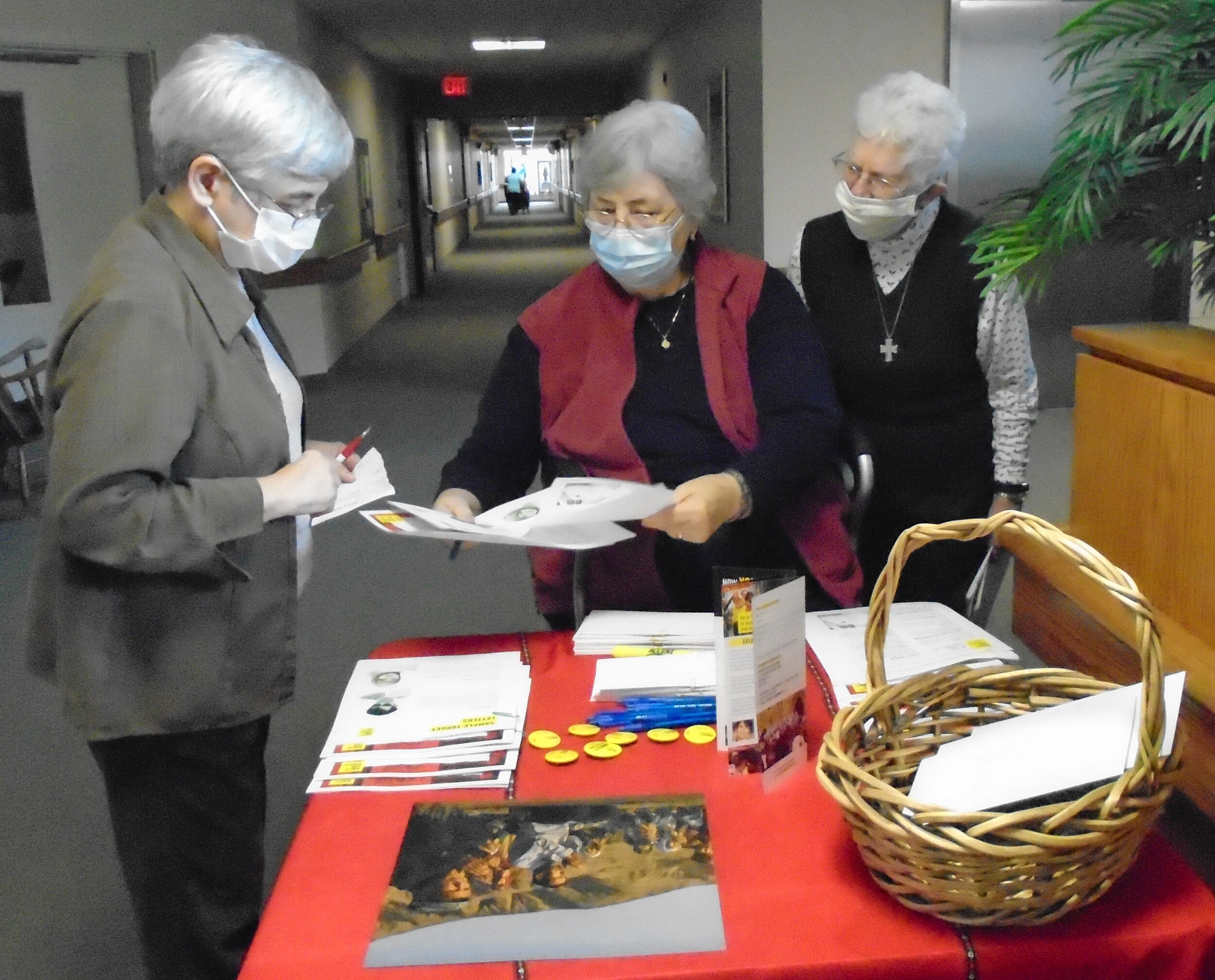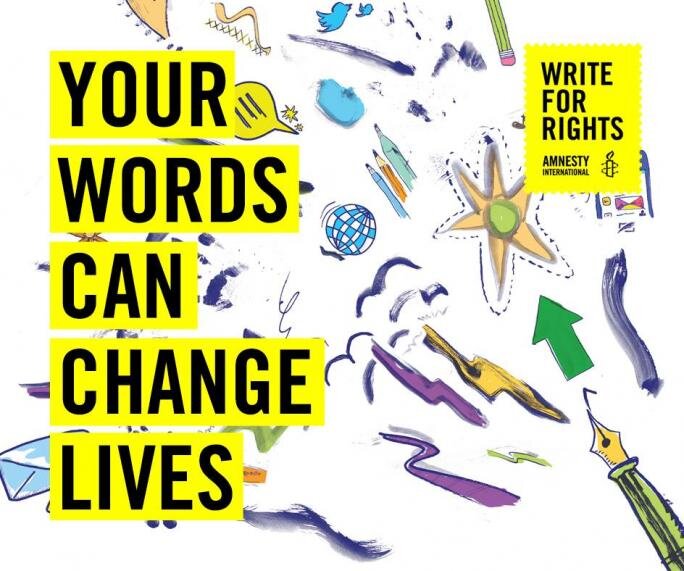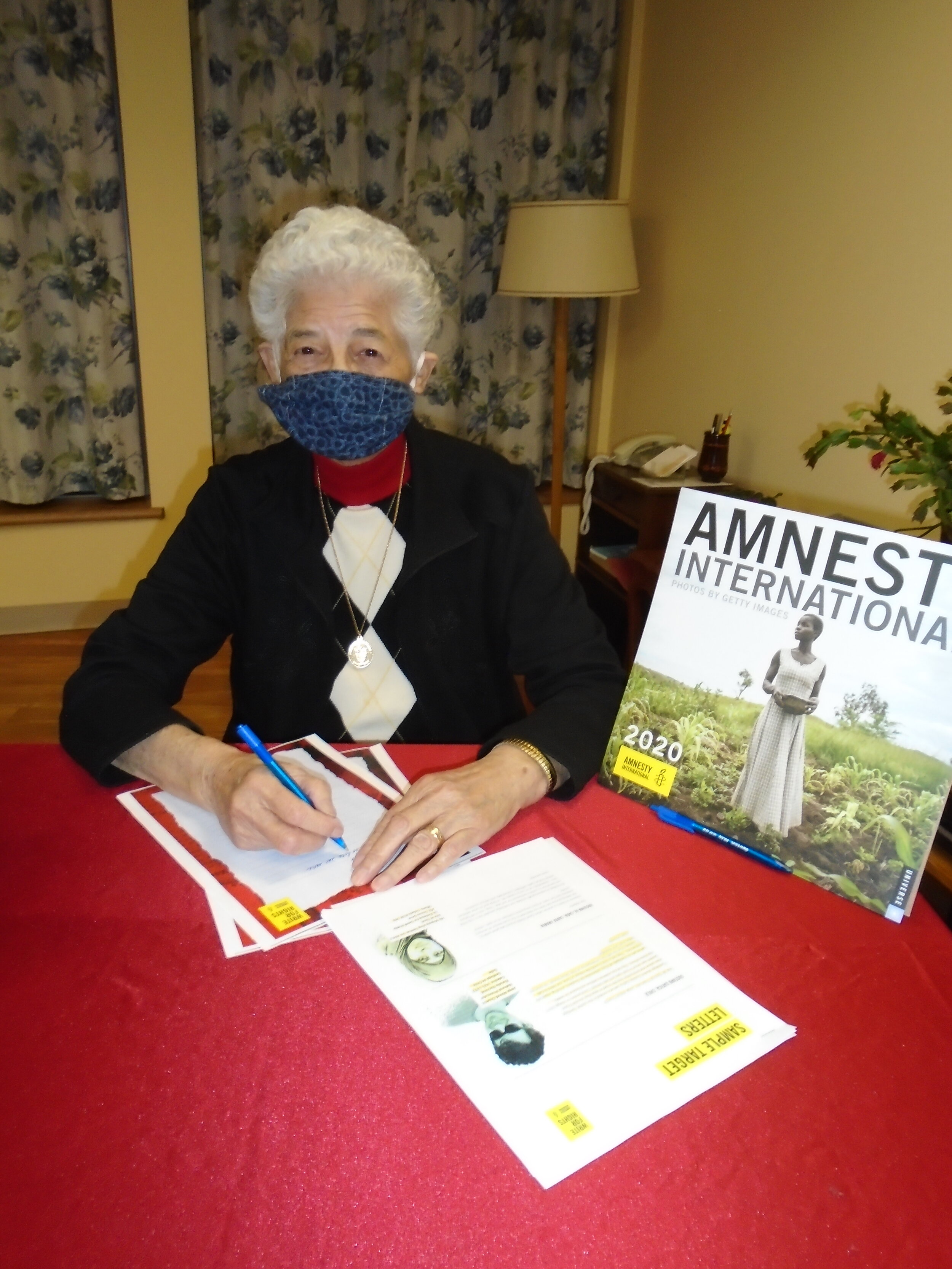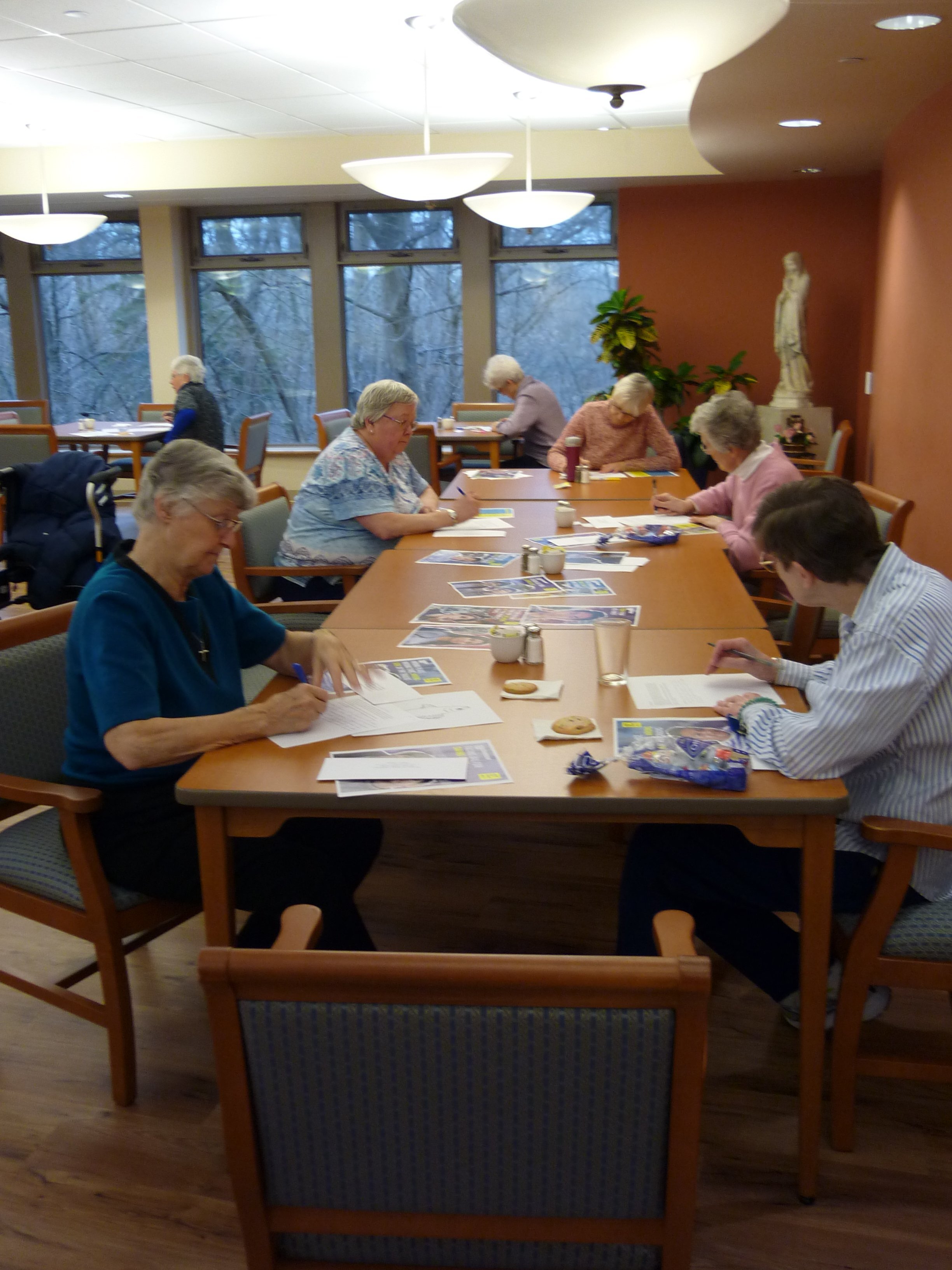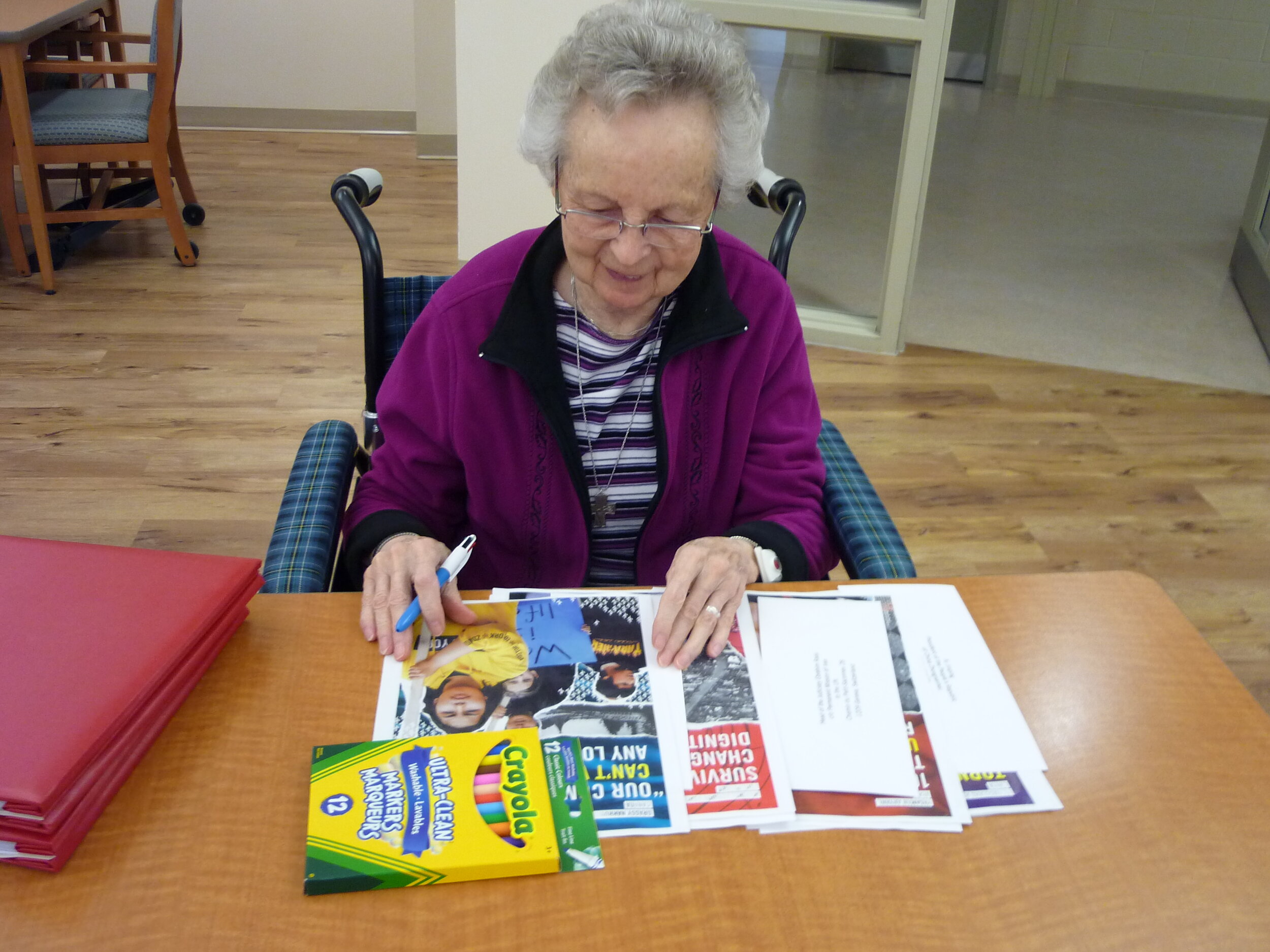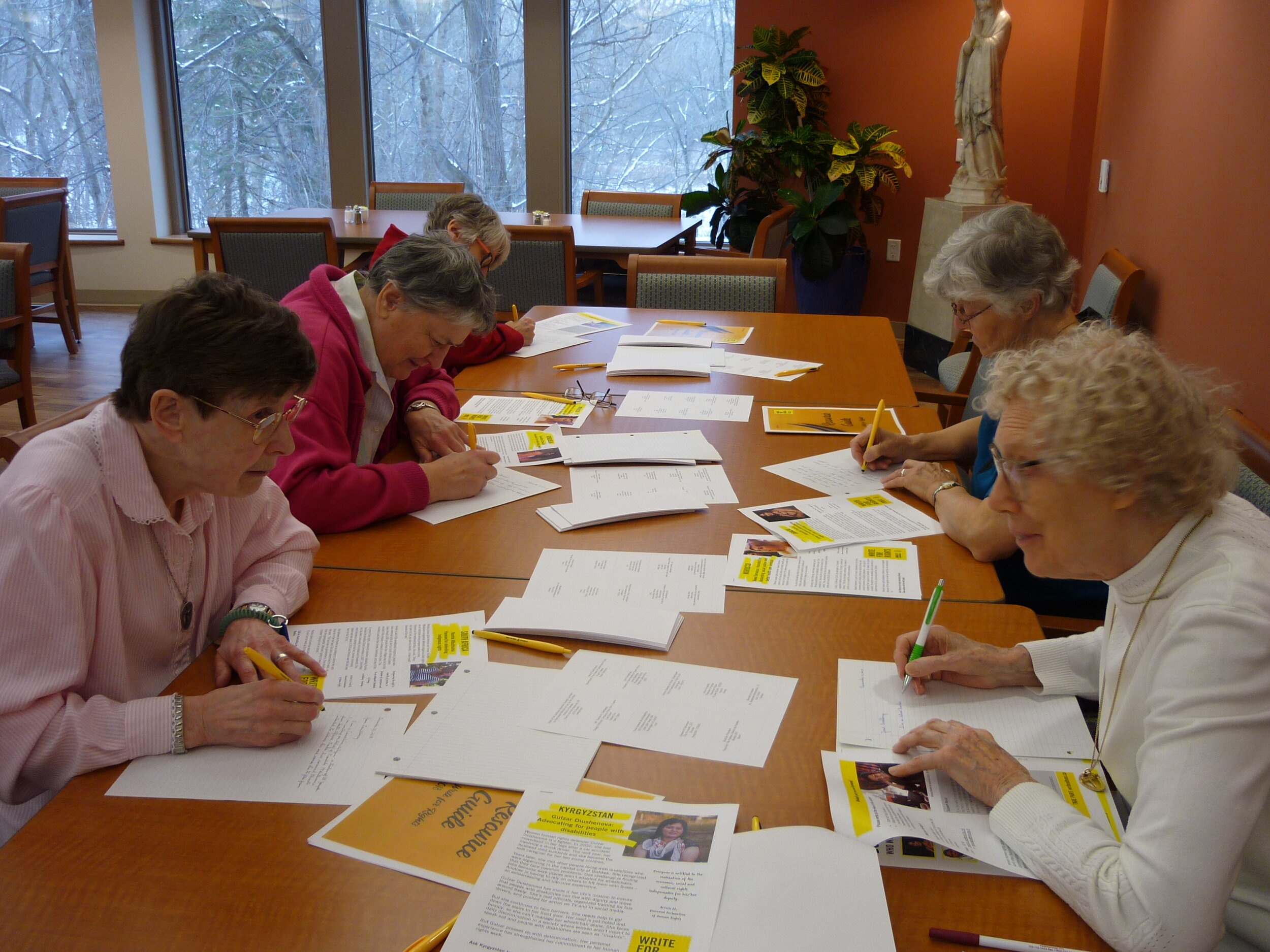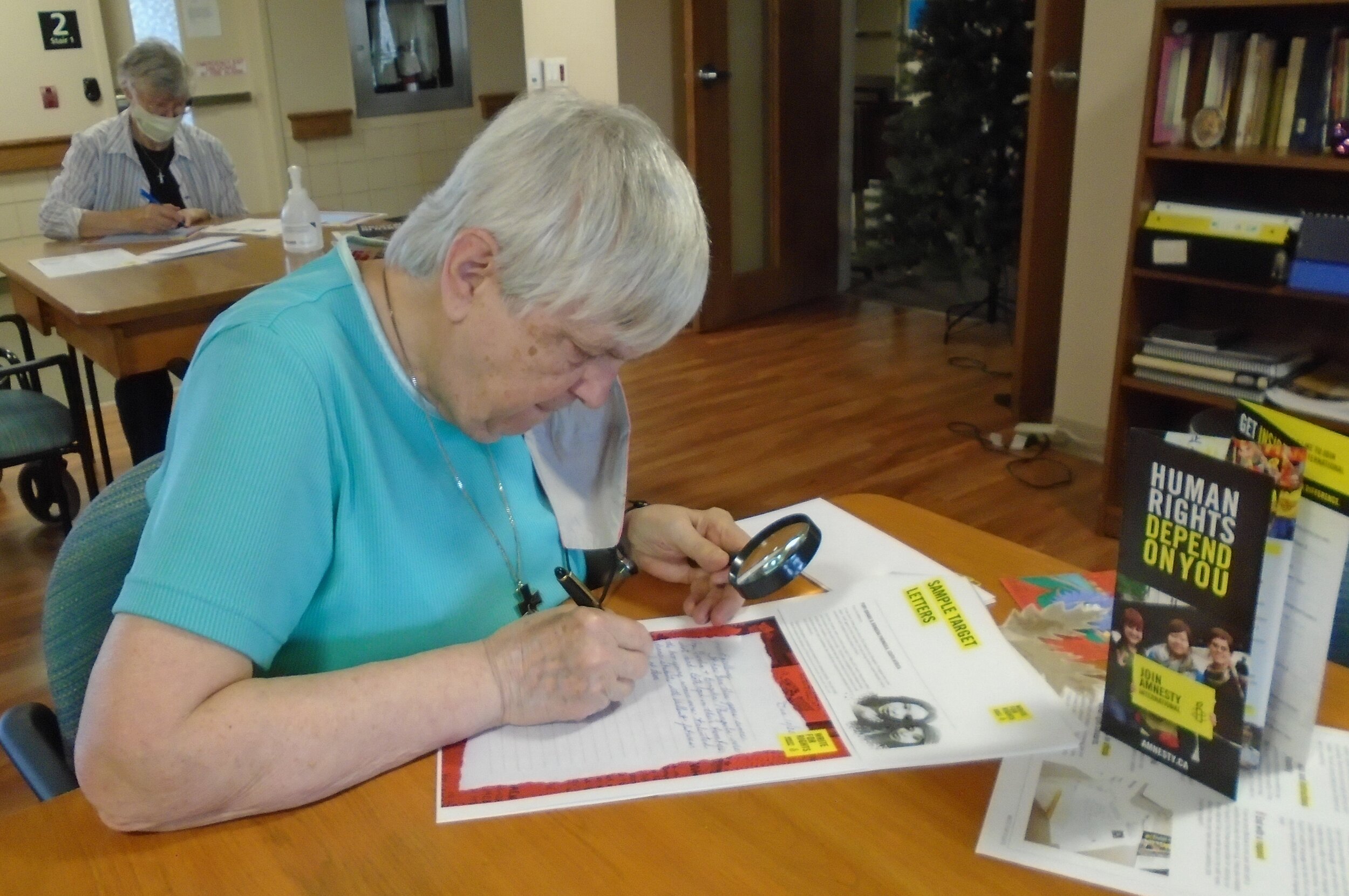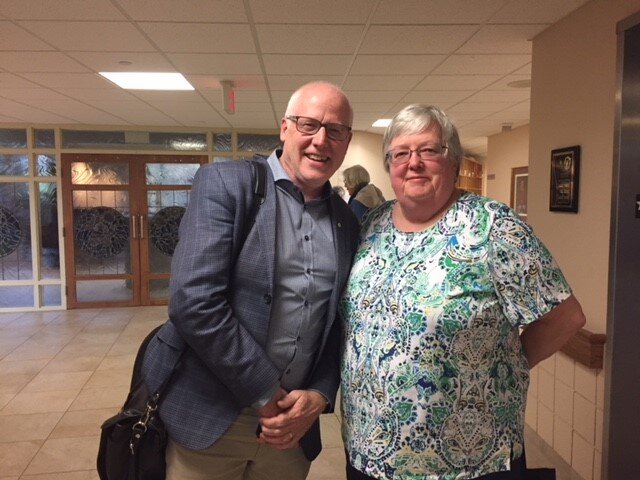May 28, 2022, marked the end of Amnesty International’s 60th anniversary year, and the end of an unusually tumultuous year in world events.
When the Sisters of St. Joseph posted our last Amnesty International blog a year ago, women and girls in Afghanistan were still attending school and university classes, holding down jobs and planning their futures with optimism and hope.
When Amnesty’s last blog was posted, the people of Ukraine were probably most concerned about the Covid-19 pandemic which had infected millions in their country with the vaccination program being somewhat slow to roll out.
A year ago, during the week that Amnesty’s anniversary blog was posted, the unmarked graves of 215 Indigenous children from the Kamloops Residential School were identified, and since then, many hundreds more unmarked graves of Indigenous children have been identified on the sites of former residential schools. Indigenous communities know there are many, many more still to be identified.
Conflicts still rage today that were in progress a year ago—in Yemen, Ethiopia, Syria, Myanmar, Nigeria, Colombia and the Democratic Republic of the Congo, to name just a few.
There are still more than a million Uyghurs and other Muslim people detained by the Chinese government in what have been called ‘concentration camps’ – the largest-scale arbitrary detention of ethnic and religious minorities since World War II.
One million Rohingya refugees are still living in precarious conditions in Bangladesh and other countries, having fled ethnic violence and persecution in Myanmar.
With two recent mass shootings in the past two weeks, in Buffalo, New York and Uvalde, Texas, the list of horrors continues to grow. While I was writing this on June 1, another mass shooting happened at a hospital in Tulsa, Oklahoma. There have been 233 mass shootings in the US in the first 152 days of 2022.
The past year has not been a year that anyone who cares about human rights and justice could celebrate.
Yet, the resilience of the people experiencing these terrible human rights violations, and their courage in standing up to oppressive governments and injustice is breathtaking and inspiring.
Three months after the unprovoked invasion by Russia, we continue to call for justice for violations of international law that have been perpetrated in the context of the ensuing conflict. Russia, like others who possess them, has used indiscriminate and illegal weapons such as cluster bombs and Amnesty International researchers are collecting evidence for future war crime trials. Millions of people have been displaced in a matter of weeks – both inside Ukraine and those who have fled the country as refugees, and entire cities are being reduced to rubble.
There are courageous human rights defenders in the Uyghur community who continue to speak out—at great personal risk – about the injustices their community is facing.
Women and girls in Afghanistan continue to fight for their fundamental rights, despite the decrees of the Taliban.
Wherever there is a conflict and an abuse of human rights, there are also courageous people who are willing to risk their lives to speak out, to demand justice and to work for change.
Amnesty International’s role is to research and report on grave abuses of human rights, and to work in solidarity with human rights defenders and amplify their calls for justice. We are grateful to know that many individuals and groups remain committed to our human rights work, and to helping Amnesty work with human rights defenders in their pursuit of justice, dignity and respect for all people.
Confronted with the human rights challenges faced by so many millions of people around the world, we celebrate our ongoing partnership with so many others including the members of the Congregation of the Sisters of St. Joseph in Canada who share a commitment to continue our collective work for justice. The Sisters have been long-term partners in Amnesty International’s human rights work, both in Canada and globally, and we treasure this special partnership.
-Rosemary Oliver
Rosemary Oliver is a member of the Senior Management Team of Amnesty International in Canada and has had the great privilege of visiting with the Sisters of St. Joseph in London over the past several years.








